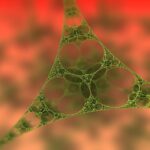Mussels, oysters and scallops have the highest levels of microplastic contamination among seafood, a new study reveals. The research — led by researchers at Hull York Medical School and the University of Hull — looked at more than 50 studies between 2014 and 2020 to investigate the levels of microplastic contamination globally in fish and […]
Micro- and nanoplastics detectable in human tissues
Plastic pollution of land, water and air is a global problem. Even when plastic bags or water bottles break down to the point at which they are no longer an eyesore, tiny fragments can still contaminate the environment. Animals and humans can ingest the particles, with uncertain health consequences. Now, scientists report that they are […]
Plastics pose threat to human health
Plastics contain and leach hazardous chemicals, including endocrine-disrupting chemicals (EDCs) that threaten human health. An authoritative new report, “Plastics, EDCs, and Health,” from the Endocrine Society and the IPEN (International Pollutants Elimination Network), presents a summary of international research on the health impacts of EDCs and describes the alarming health effects of widespread contamination from […]
Think all BPA-free products are safe? Not so fast, scientists warn
Using “BPA-free” plastic products could be as harmful to human health — including a developing brain — as those products that contain the controversial chemical, suggest scientists in a new study led by the University of Missouri and published in the Proceedings of the National Academy of Sciences. For decades, scientists have studied BPA extensively in […]
BPA levels in humans dramatically underestimated, study finds
Researchers have developed a more accurate method of measuring bisphenol A (BPA) levels in humans and found that exposure to the endocrine-disrupting chemical is far higher than previously assumed. The study, published in the journal The Lancet Diabetes & Endocrinology on Dec. 5, provides the first evidence that the measurements relied upon by regulatory agencies, including the […]
Microplastics found in oysters, clams on Oregon coast
Tiny threads of plastics are showing up in Pacific oysters and razor clams along the Oregon coast — and the yoga pants, fleece jackets, and sweat-wicking clothing that Pacific Northwesterners love to wear are a source of that pollution, according to a new Portland State University study. Britta Baechler, a Ph.D. student in PSU’s Earth, […]
Plastic teabags release microscopic particles into tea
Many people are trying to reduce their plastic use, but some tea manufacturers are moving in the opposite direction: replacing traditional paper teabags with plastic ones. Now, researchers reporting in ACS’ Environmental Science & Technology have discovered that a soothing cup of the brewed beverage may come with a dose of micro- and nano-sized plastics shed from […]
Microplastic contamination found in common source of groundwater
Microplastics contaminate the world’s surface waters, yet scientists have only just begun to explore their presence in groundwater systems. A new study is the first to report microplastics in fractured limestone aquifers – a groundwater source that accounts for 25 percent of the global drinking water supply. The study identified microplastic fibers, along with a […]
Pediatricians issue warning for parents not to microwave your kids’ food in plastic
Pediatricians have issued a warning for parents: don’t microwave your kids‘ food in plastic. Doctors say chemicals in the plastic pose health risks to children. The American Academy of Pediatrics say – in a statement published online – “that growing evidence that some chemicals found in food colorings, preservatives, and packaging materials may harm children’s health.” The Academy says […]
Phthalates may impair fertility in female mice
A phthalate found in many plastic and personal care products may decrease fertility in female mice, a new study found. Researchers at the University of Illinois found that giving female mice oral doses of the phthalate DiNP for 10 days disrupted their reproductive cycles, decreasing their ability to become pregnant for up to nine months […]









